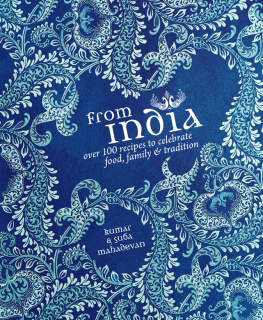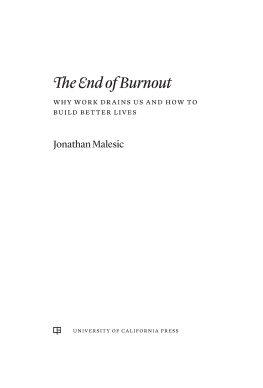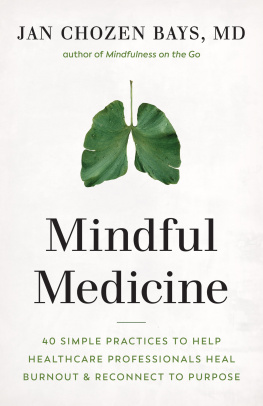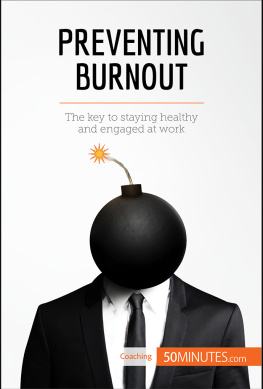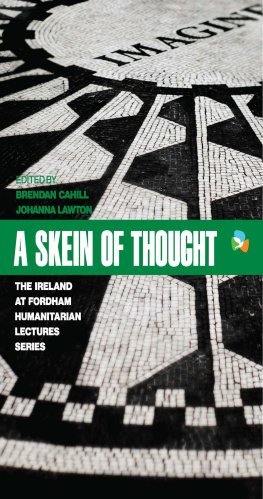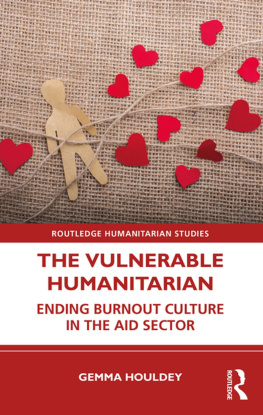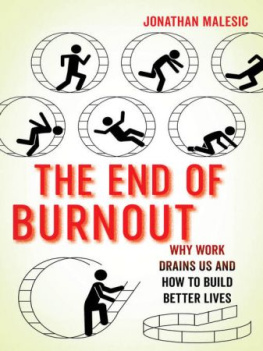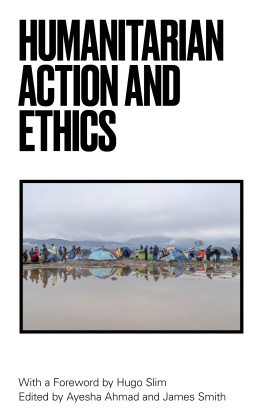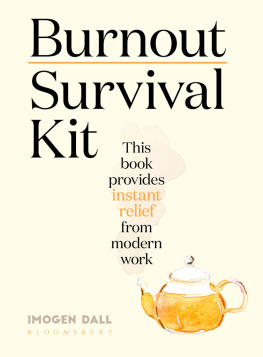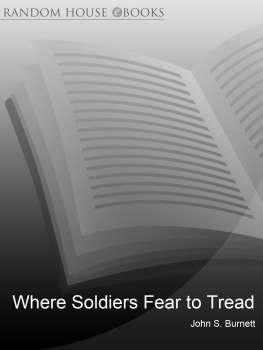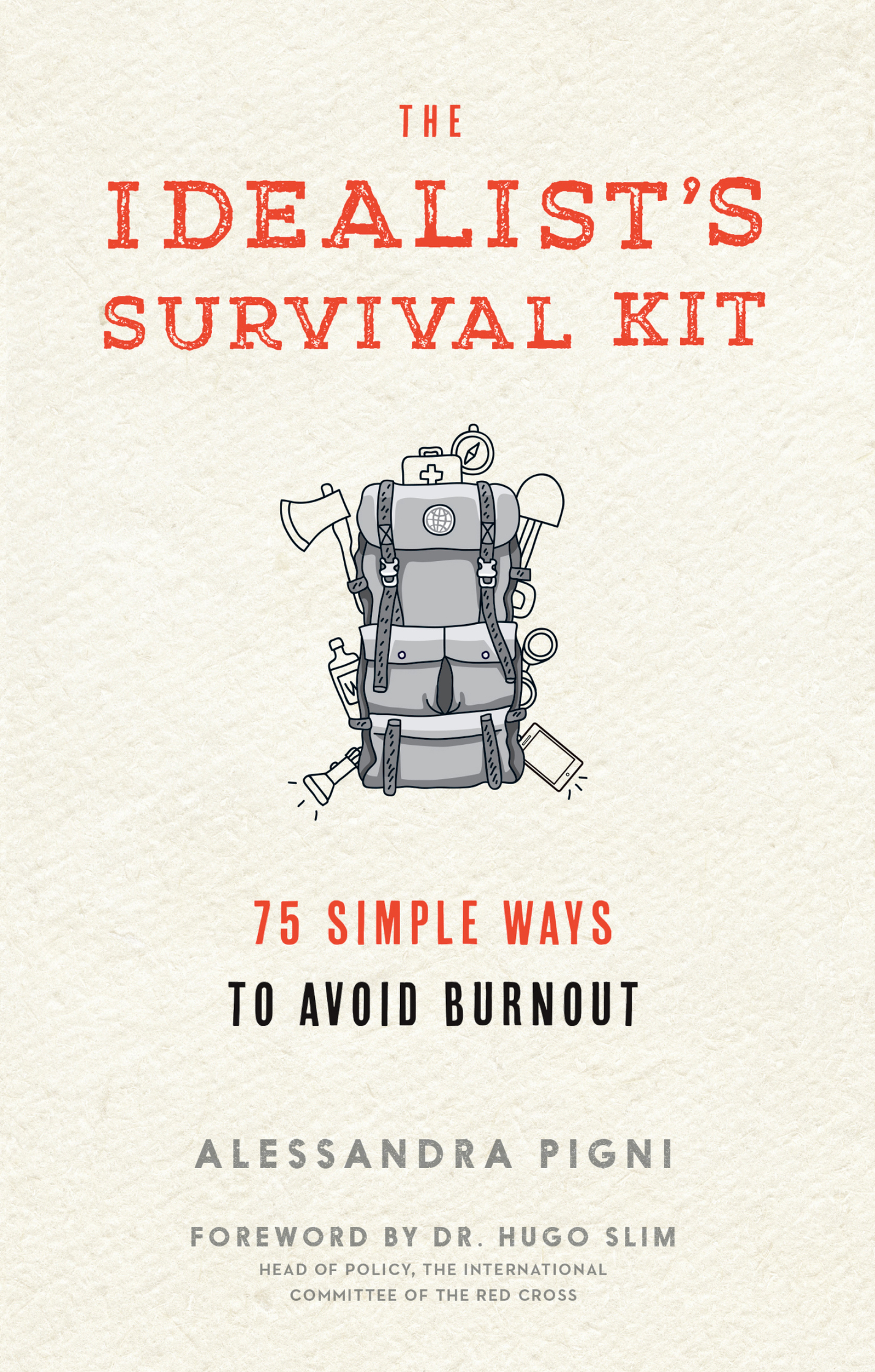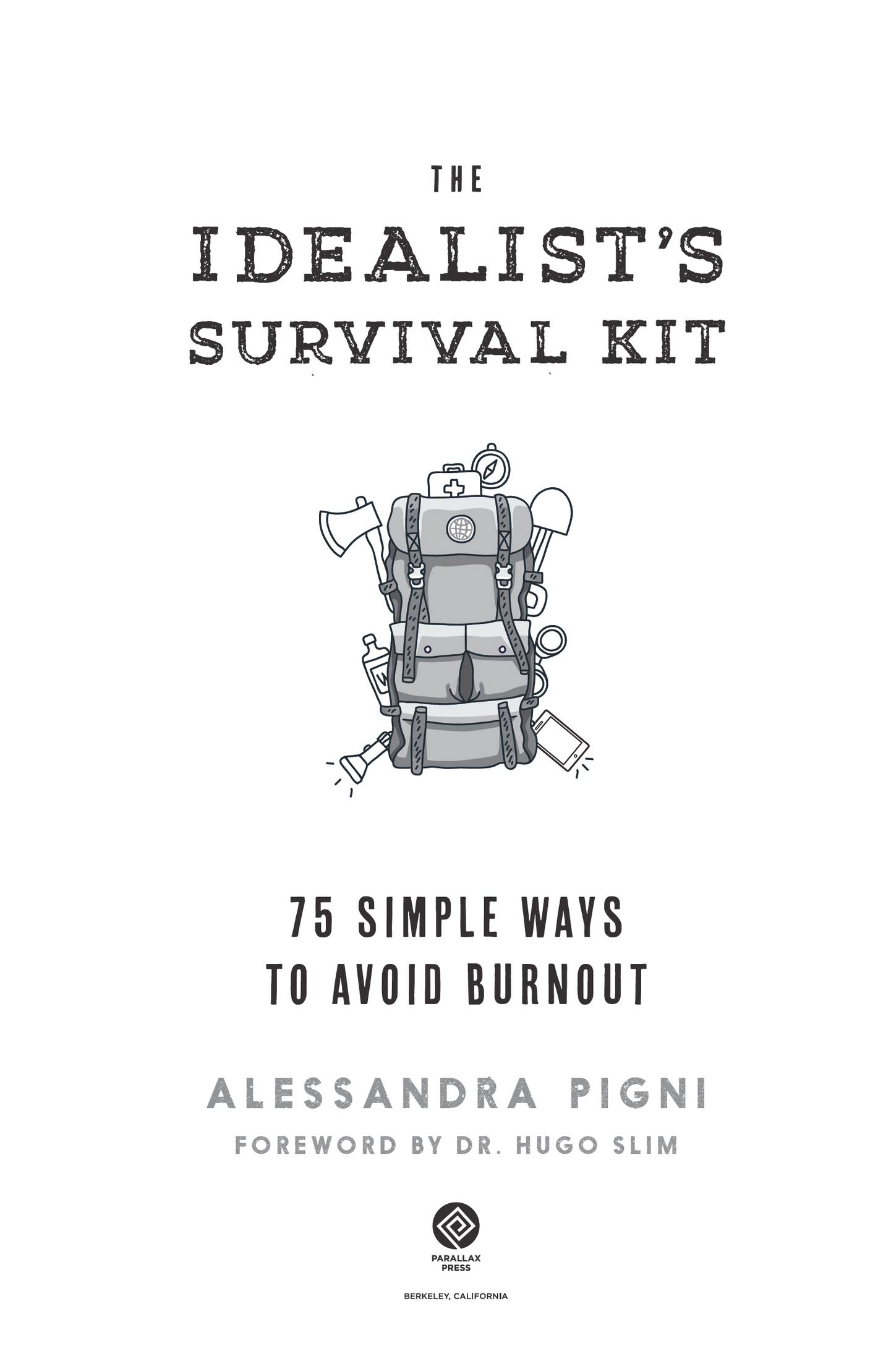Contents
Apparently, this is a book for idealists on the brink of burnout. I dont buy it. Rather, this book is for everyone, from high-powered businesspeople to innovators to humanitarians, who desperately need the tools to care for themselves as they seek solutions to the worlds challenges. With bracing honesty and piercing clarity, Alessandra Pigni shows us not only why, but also how, to practice self-empathy for the sake of efficacy. And the chapters are short: perfect for the frantic, fevered do-gooder. Do yourself some good and slow down just enough to savor Alessandras hard-won wisdom.
Irshad Manji, founder, Moral Courage Project,
The Trouble with Islam Today
The Idealists Survival Kit is essential reading for anyone in or interested in the humanitarian sector. Alessandra Pigni deftly cuts through the humanitarian tradition of suffering in silence, as well as the more recent fad of spilling all onto social media. Humanitarian aid is intensely grueling work; The Idealists Survival Kit brings sound, well-researched advice for those to whom dealing day in and out with the dangers here, whether those be contextual, organizational, or institutional, is more than something to fill a gap year.
J., aid worker, Letters Left Unsent
This book is a must-readnot only for those who work for NGOs on the front-line of humanitarian catastrophes, but all those who work in the helping professions throughout the world.
Radical in its conclusions, it shows again and again that, as if the trauma of such situations wasnt bad enough, the greater problem for aid workers is burnout. It is more pernicious too, because few will admit to it or its causebureaucratic blockages and unloving working conditions. Which humanitarian organization will admit that it is paperwork which destroys the soul and desk-fatigue rather than battle-fatigue that reduces the hardiest to complete helplessness?
When youve volunteered to expose yourself to the worst that the world can do, how can bureaucracy reduce you to tears? This book shows how. Then, little by little, based on her own experience and that of many of her colleagues, Alessandra gives extraordinarily wise and inspiring advice for how to deal skillfully with it all.
Mark Williams, emeritus professor of clinical psychology,
University of Oxford
Learning to take appropriate care of our own bodies, hearts and minds is essential if were to have resilience, resource and stamina as activists and humanitarian workers in the longer term, and to retain our capacity for the compassion that was probably a key part of what called us into such work in the first place. Experienced humanitarian, respected psychologist and mindfulness teacher Alessandra Pigni offers truly invaluable and trustworthy advice on well-tried practices and perspectives for restoring and retaining some sense of sanity, balance and open-heartedness midst the intense challenges and perennial chaos and compulsions of caring for and campaigning on behalf of others. This book offers bite-sized wisdom that can support and be of service to you in the important work youre doing.
Chris Cullen, University of Oxford Mindfulness Centre
Its hard to put ourselves first in international aid and philanthropy and other helping professions. Yet if our goal is lasting social transformation, we need organizations and movements driven by strong, imaginative, and effective individuals who can stay in this work for the long-haul. The Idealists Survival Kit provides the revelation that makes self-care not just a luxury, but an indispensable spiritual practice. Alessandra Pigni writes as your best friend, your therapist, and your own inner voice, offering guidance and encouragement to remember at once how small, and how powerful, we truly are.
Jennifer Lentfer, creator of HowMatters.org
Parallax Press
P.O. Box 7355
Berkeley, California 94707
parallax.org
Parallax Press is the publishing division of Unified Buddhist Church, Inc.
Copyright 2016 by Alessandra Pigni
All rights reserved
Ebook ISBN9781941529355
No part of this book may be reproduced in any form or by any means, electronic or mechanical, without permission in writing from the publisher.
Cover and text design by Jess Morphew
Cover image chekat / istock
Author photo Patrick Crowther
Library of Congress Cataloging-in-Publication Data is available upon request
v4.1
a
For those who think of others. And of themselves.
***
As you prepare your breakfast, think of others
(dont forget the pigeons food).
As you wage your wars, think of others
(dont forget those who seek peace).
As you pay your water bill, think of others
(those who are nursed by clouds).
As you return home, your home, think of others
(dont forget the people of the camps).
As you sleep and count the stars, think of others
(those who have nowhere to sleep).
As you express yourself in metaphors, think of others
(those who have lost their rights to speak).
As you think of others far away, think of yourself
(say If only I were a candle in the darkness).
Mahmoud Darwish
CONTENTS
FOREWORD
You are about to read a wonderful, beautiful, healing book.
Luckily for you, the way the book is written means that you may not read it all at once but rather can read each small chapter one at a time, cherishing this book bit by bit, reading it over and over again. It may well last you a lifetime.
The brief chapters, or reflections, in this book are like the famous mezze from the kitchens of the Middle East, the part of the world in which this book was born. Dipping into each new reflection, you will savor a particular, delicious piece of wisdom. At the end of it all, you will have eaten a feast that will help you, as an activist and humanitarian worker, to live your own life better and to be more useful to those around you.
Alessandras book is a work of contemplation. Her chapters are like the beads of a mishbaha or rosary. Holding each chapter in mind as you read it will help you to remember yourself and the things that are important in this life. In many ways, this book is one big reminder.
Alessandra speaks to us in a kind, simple voice that will be deeply refreshing to people who are living through our bureaucratized era of humanitarian action. There is no jargon in this book; its pages are full of stories, poems, and wise words. Alessandra writes as one of us and boasts no special expertise. She is truly herself and hopes that we too will become our true selves, rather than let our way of working and the damaging cultures of our organizations distort us. More than suggesting this, Alessandra actually takes us, in the gradual movement of each reflection, toward a way of being which offers us the means to stay healthy in this work or leave it well.
This books appearance is perfectly timed. It comes at a moment when many humanitarian workers are admitting that the sector is too often marked by a dysfunctional cultureone in which people get more burned out from the bad habits of their organizations than from the suffering they see in the wars and disasters in which they work. This has to stop. Alessandra makes clear that we need to treat ourselves humanely, just as we declare our main aim is to show humanity to others.






